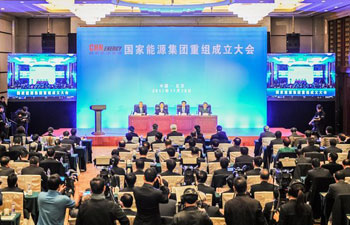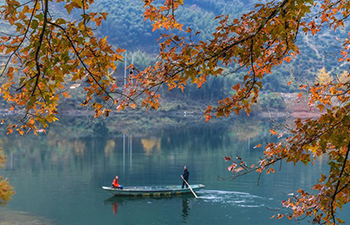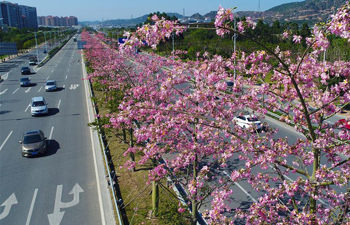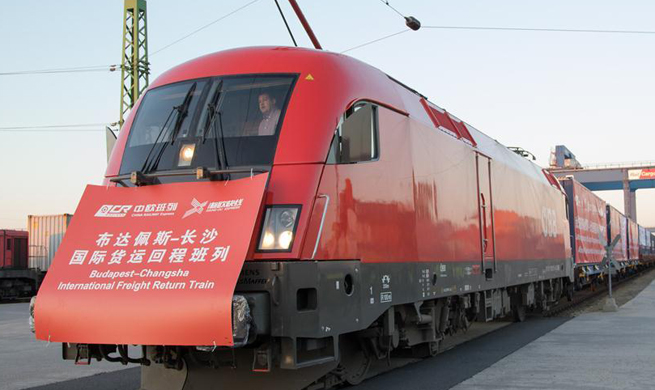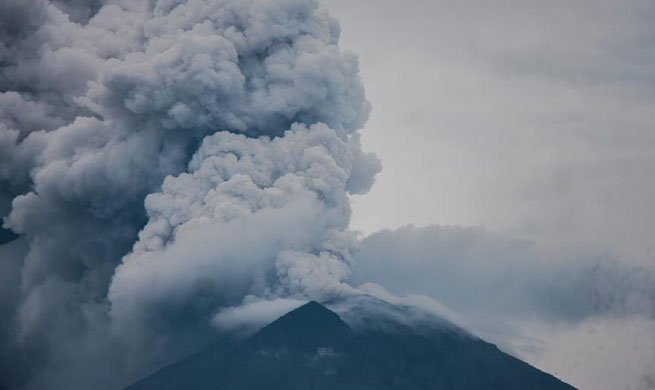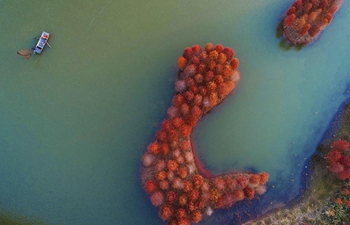ABIDJAN, Nov. 28 (Xinhua) -- As Cote d'Ivoire counts down to the fifth African Union-European Union (AU-EU) Summit which will start here on Wednesday, there is much fanfare about the benefits of Africa harnessing its young population.
With the official theme of "investing in youth for a sustainable future," the summit places youth at the heart of the discussions for the first time in its history, according to EU foreign affairs chief Federica Mogherini.
Many have interpreted the theme, despite its stress on both continents, as tilting toward Africa's youth, as the summit takes place at a time when Africa tries to tame high youth unemployment while Europe seeks relief from its migrant crisis.
Africa has 60 percent of its population under the age of 25, a demographic asset that has created a huge labor pool yet to be fully utilized due to a lack of industrialization. The ensuing high youth unemployment has fueled protests in some African countries and prompted migration to Europe.
Many such immigrants lured by a better prospect in Europe, along with those fleeing conflicts and disasters, made the dangerous trips across the Mediterranean sea. According to the UN migration agency IOM, at least 33,761 migrants have died or gone missing in the Mediterranean between 2000 and 2017, as of June 30.
In Cote d'Ivoire, the public is still reeling from the news that hundreds of their compatriots were auctioned off like slaves in Libya on their way to Europe. Responding to the public outcry, the Cote d'Ivoire government has pledged to make the issue into the agenda of the coming summit.
Those who reached the destination often found a Europe unwilling to accept them, as host countries see these fresh-off-the-boats as financial burdens posing a threat to local job market and security. The buck passing among migrant-receiving countries has caused a split in the EU and drawn international criticism.
Moreover, the legion of unemployed youths has stoked fears of boosting recruitment of terrorist groups, which are in active operations in many parts of Africa, raising concerns in the adjacent Europe plagued by frequent terror attacks.
The summit, therefore, comes as the EU is adjusting its African policies to address its own migration and security concerns. In August, several European and African leaders met in Paris over the migration crisis. The meeting concluded with promises by the European side to help African countries strengthen border controls, combat human trafficking and support local communities along the migration route.
The so-called Marshall Plan for Africa, proposed by Germany this year, also prioritized reducing poverty and unemployment to persuade young Africans to stay within the continent. Its prescription of investment and trade is also interpreted as heralding a shift of focus from government aids to the private sector.
Neven Mimica, European Commissioner for International Cooperation and Development, said Monday that the EU will team up with Africa and present its new External Investment Plan, which will help unlock 44 billion euros of investment for supporting jobs and sustainable growth.
"Improving the conditions for investment in Africa is essential to create jobs for Africa's youth and promote sustainable development," he said at the EU-Africa Business Forum held in Abidjan.
Critics, however, have questioned the investment approach, which they say belies Europe's intention to cut official development assistance (ODA), which is still crucial to some least-developed countries that investors find it hard to enter.
Some Africans also remain suspicious about Europe's willingness to dig deep into their own pockets to help Africa.
"They (Europeans) are not going to invest in Africa's youth, but are here to tell African leaders it is important to invest in youth," said Bamba Abdoulaye, history professor at the University of Felix Houphouet Boigny in Abidjan.
Abdoulaye compared Africa's summits with Europe and with China, saying the former are more about declarations and talks, while the latter are often followed by concrete actions.
"The key solution lies in Africans taking actions ourselves. We may need Europeans' support, but not their prescriptions," he said.




